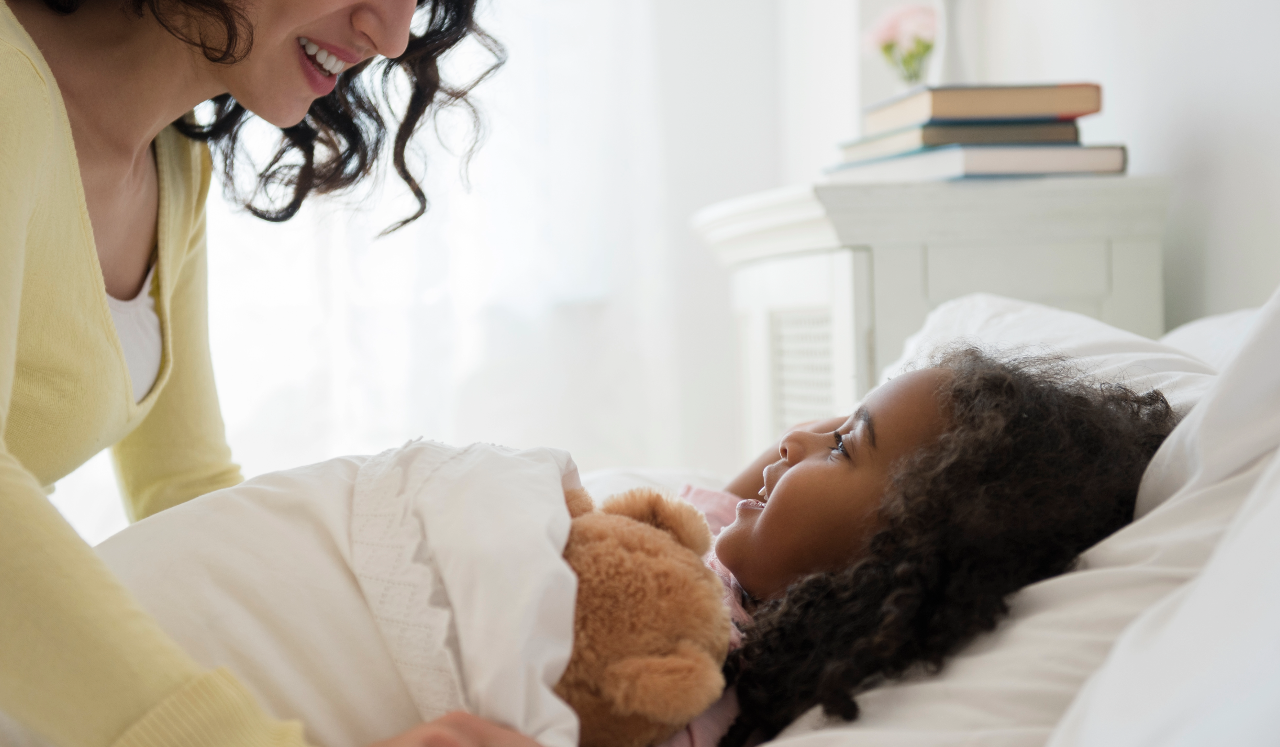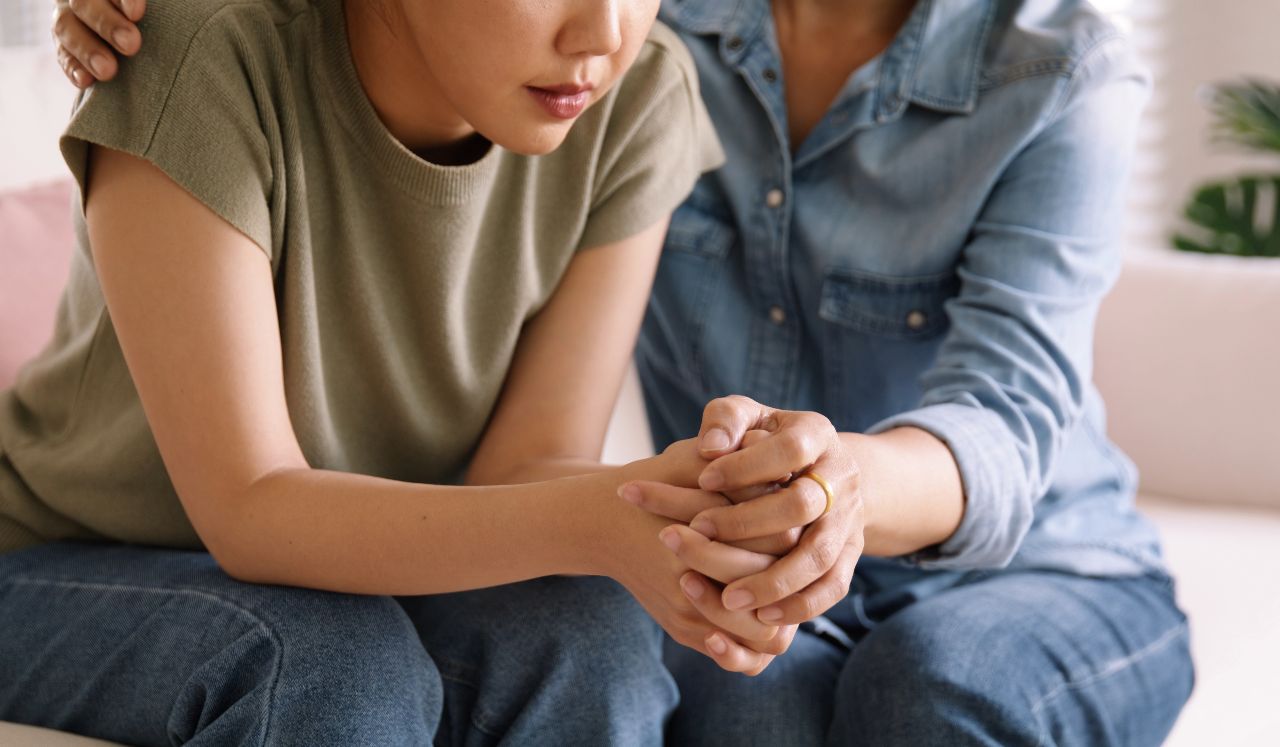Sleepiness should be reserved for nighttime so you and your family’s daytime can be spent being productive.
“The quality of your sleep can affect how you feel, think and act,” says Dr. Jasmine Mitchell, MD, family medicine physician at Memorial Hermann Medical Group (MHMG) Clear Lake.
If you’re exhausted, you’re not alone.
More than one-third of adults get insufficient sleep and trudge around like zombies through at least half their week, say Sleep in America Polls from the National Sleep Foundation. Those who snooze don’t actually lose—they win.
As you doze, your body may seem inactive, but your brain is busy repairing muscles, rebooting memory and banking knowledge. Sleep also help stimulate growth spurts in your kids.
But without top quality slumber, you and your family’s performance may not reach its potential.
You may leave bed foggy, not fresh. And instead of being more mentally crisp, calm and creative during the day, you may drift lack attention doing chores or attending Zoom meetings, adding goofs and anxiety to your grogginess.
Adults who sleep less than seven hours nightly also are three times more likely to be moderately to severely depressed, the NSF says.
If you find yourself perpetually without pep, you may need to reconsider your bedtime behavior. Here are Dr. Mitchell’s tips for a better night’s sleep—and some may surprise you.
Be consistent. “You and your children should go to bed and wake up at the same time—including on weekends,” she says. “That’s how you create a normal sleep rhythm.”
You also should set your circadian rhythm, or inner clock, by heading into the bright light outdoors soon after you rise.
Trying to make up for lost rest during the week by oversleeping on the weekend does not pay off. Anything less than seven hours of shuteye a night is an ongoing debt.
“It’s a myth that your body gets used to lack of sleep,” Dr. Mitchell says. “Short-term, you erode mood, memory and performance. Long term, six or fewer hours of sleep takes a toll on your overall health.”
The younger you are, the more sleep you need. That’s why newborns to 1-year-olds sleep 14-18 hours daily, including naps—if parents are lucky. Toddlers need 12 hours, and preschoolers 10-12 hours. “By middle school, children and teens need 8-10 hours,” she says.
Create a restful routine. Known as sleep hygiene, “This process refers to your family’s environment and behavior,” Dr. Mitchell says.
Your quest for a restful routine may start with regulating dinner, TV time and homework. Encourage your family to engage in low stimulation activities like playing board games or reading books as they approach slumberland.
Children whose parents enforce stricter bedtime routines are more likely to fall asleep faster, sleep longer and have fewer wake breaks.
With toddlers, you can help them pick out PJs, brush their teeth, take a shower and settle in for a bedtime story. “If they want another story, pick a shorter one so that you spend 15-20 minutes overall,” Dr. Mitchell says. “Having a ritual involves them and their parent.”
Younger children may find comfort in a stuffed companion or be mesmerized by a nightlight that shines on the ceiling.
“When children of any age get ready for bed, remove electronic devices,” she says. “Teenagers often are sleepy during the day because they were on their devices deep into the night.”
If kids balk at bedtime, review their habits to see if there are gaps impacting the routine. Maybe they take too many naps during the day or perhaps are buzzing from caffeinated or sugary drinks. They also may crave attention from their parents, Dr. Mitchell says. “The best thing is consistency, and how waking up and going to school becomes routine.”
Redo bedrooms. For maximum sleep time, try to shut out environmental distractions with truly effective blinds and curtains. Also turn down the outside volume via double- or triple-pane windows and keep the temperature comfortable.
While Dr. Mitchell also recommends removing TVs from bedrooms—especially kids’ sanctuaries.
“Your bedroom should be quiet, relaxing, lights off, and not have any TV on or phone around when you’re trying to go to sleep.”
Lights off doesn’t just refer to your bedside lamp.
“When you’re exposed to the blue light of cellphones, tablets, laptops or TVs, that interferes with your body’s production of the sleep-inducing hormone melatonin,” Dr. Mitchell says. “As a result, your brain is triggered to keep you up.”
That’s why you should relinquish devices an hour before you head to bed. Or, if working late is a must in the evening, use lower-light modes for your phone or laptop. Also keep in mind that the kinds of content you see on the web may activate your mind, further delaying sleep.
Work out—but not too late. “Being physically active is good for your health,” Dr. Mitchell says.
But timing matters.
Sweat sessions can boost your energy—literally, with the hormone adrenaline—so you’re buzzing afterward. That’s why she advises against exercising within two hours of going to bed.
“Otherwise, exercise can make it hard to fall asleep, so you stay up longer,” she says.
Observe closing time. Set an early last call for caffeine, alcohol and hefty meals—as much as three hours before calling it a night.
Though it’s known to create drowsiness, alcohol can cause your sleep to be shallow and restless. Also, alcohol is a diuretic, so it increases the urge to get up and urinate. As for food, feeling full can lead to overnight discomfort and possibly gastroesophageal reflux disease (GERD).
But you can have your snack substitute and drink it, too. Milk or warm tea are worthy wind-down winners, Dr. Mitchell says, “though that’s more psychological than physiological.”
Seek sleep help. If your nighttime routine is tip-top yet you still yawn or nod off during the day, you should see your doctor.
They can review your medications, as some may be diuretics that lead to more frequent bathroom breaks. Your doctor also may prescribe a drug that soothes your bladder and battles excessive restroom trips.
Snores can be a wake-up call. At least 22 million Americans—more than 2.5 times the population of New York City—suffer from obstructive sleep apnea, reports the National Sleep Foundation.
This condition blocks the airways, causing people to awaken repeatedly through the night as they gasp for breath.
Among the causes of sleep apnea are enlarged tonsils and adenoids—glands that reside at the back of the throat. Your tonsils can help fight throat infections but also can grow bigger when inflamed from frequent infections. Their size then disrupts shuteye—and not just for adults.
You or a family member may be among this group if you repeatedly find it hard to fall asleep, awaken often during the night, snore loudly or feel wiped out despite having had 8-10 hours of sleep. Those are sure signs to see your doctor, Dr. Mitchell advises.
Being morbidly obese, which means having a BMI greater than 40, also raises the risk of disruptive sleep apnea. Three of five obese children suffer from sleep apnea, reports the foundation.
Weight loss can be effective to combat sleep apnea, as can mouthguards that open space around the tongue. In severe cases, a continuous positive airway pressure (CPAP) machine helps a person breathe by expanding the airways at the back of the throat with constant, steady pressure.
But don’t lose sleep over the methods. For most people, new habits alone—not extreme measures—can make the difference between lethargy and energy, Dr. Mitchell says.
Wake up to your sleep needs and make the effort, she says.
“For your overall health and how well your body functions, quality sleep is worth it.”


